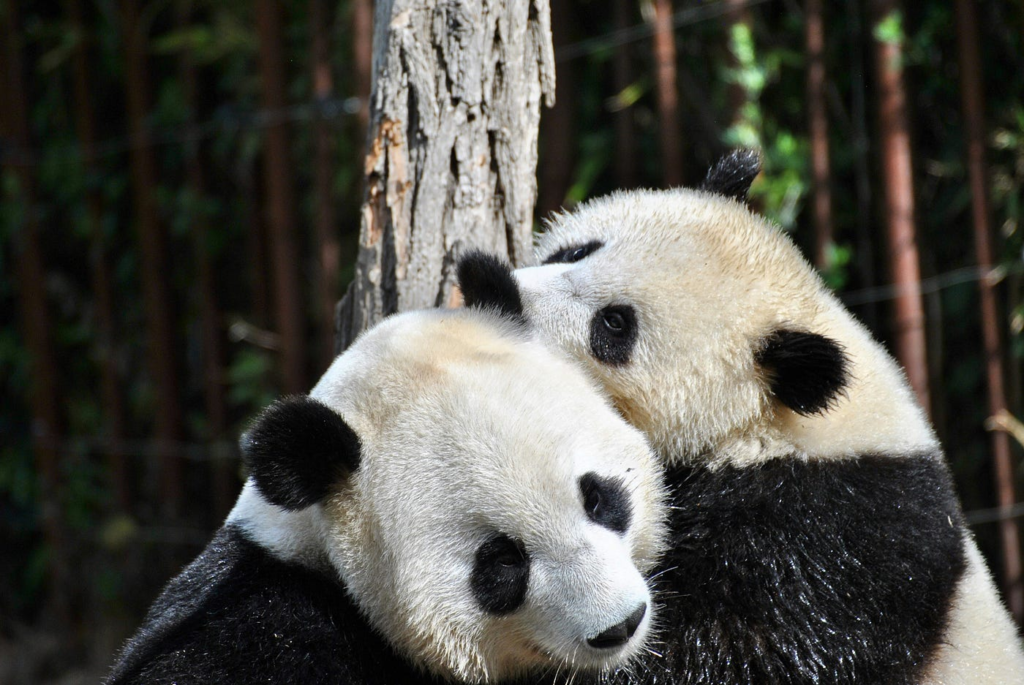Finland to return giant pandas to China after years of struggling with financial burdens. The decision to return these majestic animals was not made lightly, as it reflects the challenges of sustaining their care.
The pandas, Lumi and Pyry, have been an important part of Finland’s connection with China, but the ongoing costs became too great for the zoo to handle. This marks the end of an agreement that was initially meant to last for 15 years but is being cut short due to economic realities.
The Background of Panda Diplomacy
Since its founding in 1949, the People’s Republic of China has used pandas as a symbol of friendship and diplomacy. The decision for Finland to return giant pandas early may appear surprising, but it’s part of a larger story.
Read : Finland: The Enchanting Land of a Thousand Lakes and Captivating Midnight Sun
China has sent pandas to countries around the world as a gesture of goodwill, often fostering closer trading ties and diplomatic relations. In the case of Finland, the agreement followed a 2017 visit from Chinese leader Xi Jinping. The pandas arrived at the Ahtari Zoo in January 2018, sparking excitement and hope for a boost in tourism.
Read : Finland Becomes the First Nation to Offer Bird Flu Vaccines to Humans
This deal, however, had a significant financial component. While panda loans are symbolic, they come with steep costs. Ahtari Zoo, a private company, invested over 8 million euros to build facilities for the pandas, hoping the attraction would draw enough visitors to make the investment worthwhile.
The zoo also paid an annual preservation fee to China as part of the loan agreement. Yet despite these efforts, Finland is now faced with the need to return giant pandas to China much earlier than expected.
Financial Struggles and the Pandemic’s Impact
The decision for Finland to return giant pandas stems largely from financial struggles that have persisted over the years. When the pandas arrived, there was optimism that they would help boost tourism to central Finland, drawing visitors to the Ahtari Zoo. However, the pandemic hit soon after their arrival, severely curbing travel and reducing visitor numbers.

The pandemic’s impact on global travel was devastating for many businesses, and Ahtari Zoo was no exception. While the zoo anticipated increased revenue from hosting the pandas, instead, they accumulated significant debt.
The annual upkeep for the pandas alone cost around 1.5 million euros, including the fee paid to China for the pandas’ preservation. This was unsustainable for the zoo, which found itself in a precarious financial situation.
A Difficult Decision for Finland and Ahtari Zoo
Over the past three years, Ahtari Zoo had been negotiating the return of the pandas with Chinese authorities. Rising inflation in recent years only added to the zoo’s economic burdens, making it impossible to continue funding the pandas’ care.
Despite the significance of panda diplomacy and China’s attempts to support the zoo, it was ultimately a mutual decision for Finland to return giant pandas to China.
In 2023, Finland’s government rejected appeals from the zoo for state funding to cover the pandas’ upkeep. Without the necessary financial backing, the zoo had no choice but to conclude its efforts.
As a private company, Ahtari Zoo had already invested millions into the pandas’ care but faced mounting debt due to the high costs of maintenance.

The Ahtari Zoo will soon begin the process of sending the pandas back to China. Lumi and Pyry will go into a month-long quarantine before making their return to their native land.
Although the original agreement was for 15 years, the two countries came to a friendly and mutual understanding that this was the best path forward. The decision to return the pandas was a business one, made independently by the zoo without direct involvement from the Finnish government.
What This Means for Finland and China
The return of these pandas has raised questions about the broader implications for Finland and China’s relationship. However, according to officials, Finland’s decision to return giant pandas will not have an adverse effect on their diplomatic ties.
A spokesperson for Finland’s foreign ministry has stated that this move is purely a financial decision and will not influence the countries’ ongoing relationship.
The Chinese embassy in Helsinki echoed this sentiment, confirming that both countries came to a joint conclusion after friendly discussions.
While it is unfortunate that the pandas will no longer reside in Finland, the bond between the two nations remains intact. In the end, the return of the pandas was a necessary step due to financial constraints, but it should not harm the goodwill established between Finland and China.
The use of pandas as diplomatic tools is part of China’s larger strategy to foster international goodwill. The early return of these pandas is a reminder of the significant costs involved in hosting them and the financial pressure that many zoos face worldwide.
Finland’s experience shows that while panda diplomacy can create a meaningful connection between countries, it also requires substantial financial resources that are not always sustainable.

The Future for Lumi and Pyry
As the decision is made for Finland to return giant pandas to China, there is a bittersweet sentiment among many in the country. Lumi and Pyry became beloved figures in Finland during their short stay.
The public had the opportunity to learn about these rare and precious animals, making their departure all the more difficult. Still, their return to China ensures that they will continue to be well cared for in a facility that has the resources to support them.
The future of the pandas in China will likely involve continued conservation efforts. China’s panda program is world-renowned for its success in breeding and preserving the species, and the return of Lumi and Pyry is a step toward ensuring their long-term survival.
For Finland, this chapter marks the end of a diplomatic gesture that, while financially taxing, helped strengthen cultural and political ties with China. The decision to return the giant pandas early reflects the reality of economic challenges faced by institutions worldwide, especially in the wake of global crises such as the pandemic.
The story of Lumi and Pyry is emblematic of the broader practice of panda diplomacy and the challenges that come with it. The decision for Finland to return giant pandas to China reflects the financial strains that Ahtari Zoo faced, compounded by the pandemic and rising inflation. While the original plan was for the pandas to stay for 15 years, economic realities have cut their stay short.
Despite the early return of these pandas, Finland and China continue to share a positive relationship, and both countries have come to a mutual understanding on the matter. For Lumi and Pyry, their return to China marks the beginning of a new chapter in their lives, where they will continue to be part of important conservation efforts.

